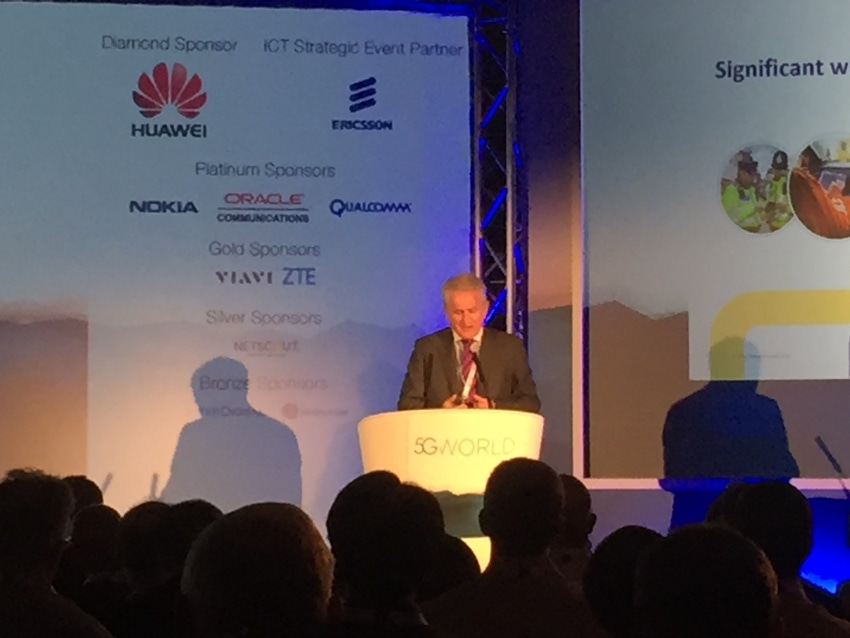BT has laid out its plans for fixed-mobile convergence in the build up to the arrival 5G, suggesting it will completely redefine operators’ customer experience strategies.
June 30, 2016

BT has laid out its plans for fixed-mobile convergence in the build up to the arrival 5G, suggesting it will completely redefine operators’ customer experience strategies.
In his keynote session at 5G World BT’s group MD for mobile, Steve Haines, said as a converged service provider, BT needs to migrate the past, deliver the present and prepare for the future. Specifically therein, he said operators need to understand their existing customer experience strategy, and plan how 5G will fit into that.
“Our ambition is to allow customers to connect to this next generation, all IP network via whichever means they choose,” said Haines. “It’s not about technology, it’s about the customer, their experience and their service cases, and that dominates our thinking when we’re developing a fully converged all-IP core.”
Haines went on to say that 5G will form even closer ties between service offerings, and as well as tighter fixed-mobile convergence, it will evolve quad and multiplay bundling for both the consumer and enterprise organisations.
“Mobile has changed the way we look at delivering services to the customer,” he said. “There’s quad play as well so we’re on the way to delivering that enhanced customer experience. But the next step is to deliver greater features and functionality. The consumerisation of IT through the smartphone is changing the way we look at the enterprise. Mobile is now a fundamental business model for enterprise and SMEs, which is changing our view of business services.”
With customer experience at the heart of his presentation, Haines concluded by explaining what BT sees 5G being from a technological perspective. He lightly touched upon the spectrum required, but in what was a largely strategic, business level presentation, he gave BT’s definition of 5G.
“5G needs to be all things to all people,” he said. “It needs to drive superfast access speeds, but also this lightning fast response speed for instant decision making abilities. I sense it won’t be like 4G which was a big slate, ‘build it and they will come’ approach. I think 5G will be more subtle, a collection of various spectrum elements like licensed and unlicensed. The most important thing about 5G is use-cases and isn’t just about the technology.”
Haines reiterated BT’s £6 billion infrastructure investment to illustrate the telco’s approach to perpetual innovation. But while £1.5 billion is already dedicated to boosting EE’s coverage (it’s targeting 95% of the UK landmass by 2020), and with a fair chunk going on Openreach optimisation, FTTP and G.fast projects; it is unclear exactly how much BT will be looking to invest in 5G research and development.
About the Author(s)
You May Also Like








.png?width=300&auto=webp&quality=80&disable=upscale)


_1.jpg?width=300&auto=webp&quality=80&disable=upscale)


.png?width=800&auto=webp&quality=80&disable=upscale)